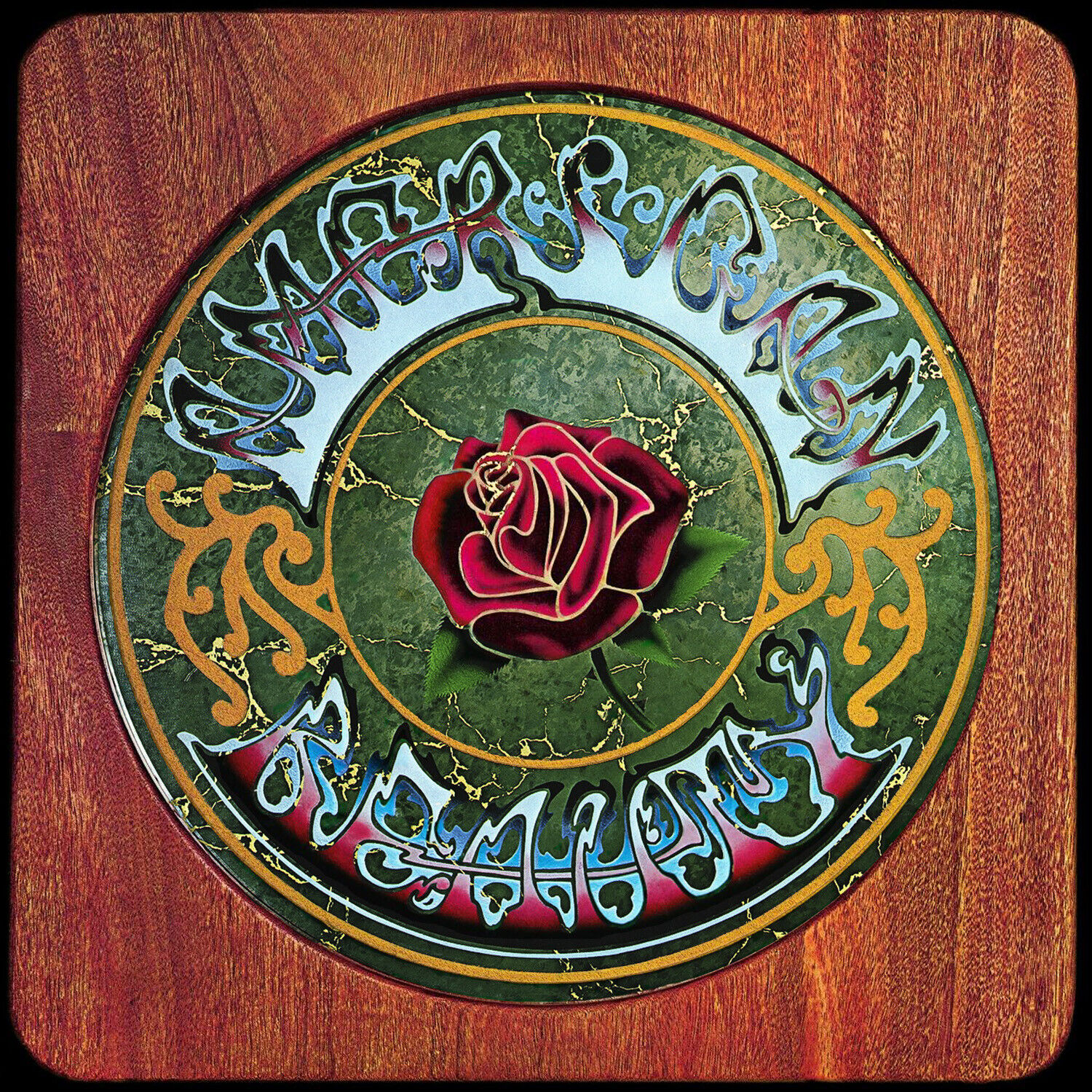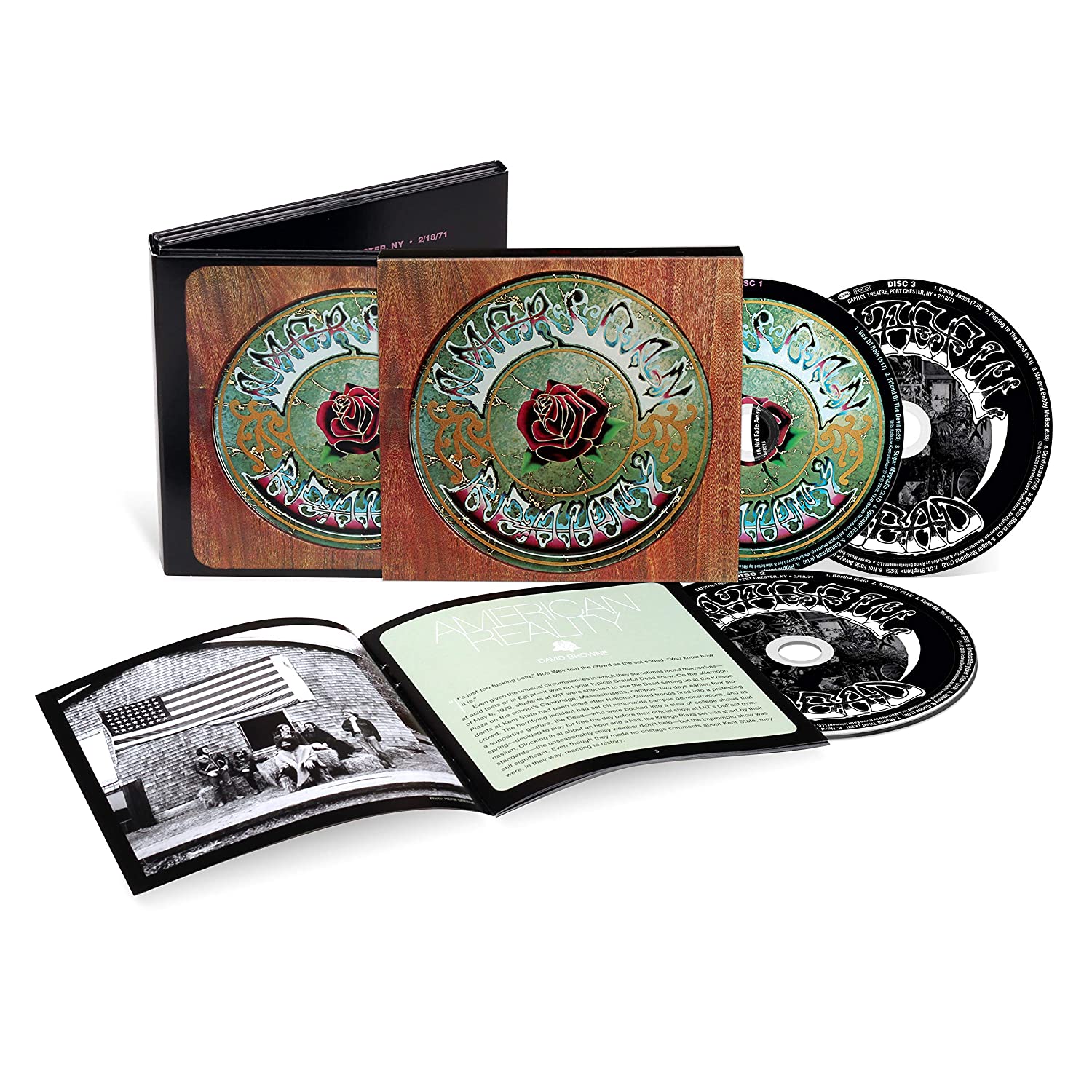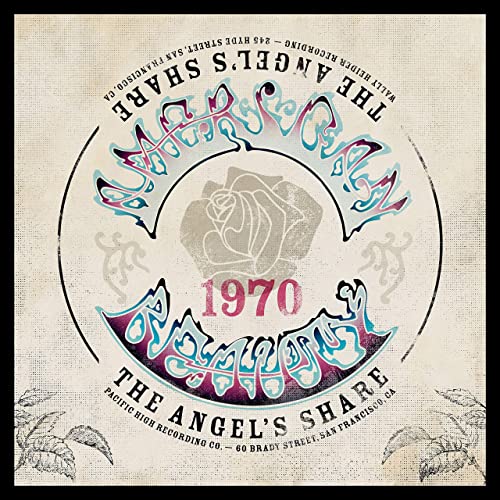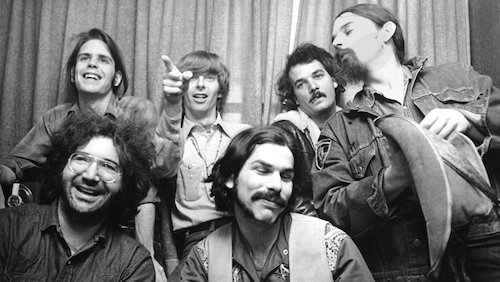 The Grateful Dead practically reinvented themselves with their terrific fourth studio album, June 1970’s Workingman’s Dead, which found them eschewing long psychedelic jams in favor of tightly constructed country-influenced rock that emphasized vocal harmonies and acoustic instrumentation. They remained largely on that path—albeit while injecting a bit more mysticism into a few of their lyrics—for their next LP, American Beauty, which showed up a mere five months later, on November 24, 1970. The similarities aren’t surprising, given that the albums were recorded in the same year; in fact, at least a couple of the tracks on American Beauty were actually considered for inclusion on its predecessor.
The Grateful Dead practically reinvented themselves with their terrific fourth studio album, June 1970’s Workingman’s Dead, which found them eschewing long psychedelic jams in favor of tightly constructed country-influenced rock that emphasized vocal harmonies and acoustic instrumentation. They remained largely on that path—albeit while injecting a bit more mysticism into a few of their lyrics—for their next LP, American Beauty, which showed up a mere five months later, on November 24, 1970. The similarities aren’t surprising, given that the albums were recorded in the same year; in fact, at least a couple of the tracks on American Beauty were actually considered for inclusion on its predecessor.
Listen to an American Beauty outtake of “To Lay Me Down,” later released on Jerry Garcia’s debut solo album in a different version
Though both releases rank with the best studio recordings of the Dead’s entire career, American Beauty arguably represents the cream of the crop. Though it never rose higher than #30 on the charts at the time of its release and produced only one minor single (“Truckin’,” a vehicle that stalled at #64), it has sold steadily over subsequent decades.
And at least half of its 10 songs are today recognized as Dead classics, including “Box of Rain” (written by Phil Lesh for his dying father), “Friend of the Devil,” “Sugar Magnolia,” the aforementioned “Truckin’” and the exquisite, hymn-like “Ripple.”
Like all of its predecessors in the Dead’s studio catalog, American Beauty was reissued in a 50th anniversary edition, in 2020. The package couples an excellent remaster of the original 42-minute record with a nearly two-and-a-half-hour February 1971 concert from the Capitol Theatre in Port Chester, N.Y. The live material, though long available online, had not previously seen an official release.
The well-recorded concert, which mostly showcases the other side of the band’s personality, includes only three numbers from American Beauty (“Truckin’,” “Candyman” and “Sugar Magnolia”), all of which are reworked and considerably lengthened. Also on the program are two expansive medleys—“Goin’ Down the Road Feeling Bad”/“Not Fade Away” and “Dark Star”/“Wharf Rat”—plus such concert staples as “St. Stephen” and covers of Kris Kristofferson’s “Me and Bobby McGee,” Merle Haggard’s “Mama Tried” and Chuck Berry’s “Johnny B. Goode.”
Related: Our Album Rewind of the deluxe edition of Workingman’s Dead
 Yes, these recordings join a discography that already includes several million other Dead concert albums (or so it sometimes seems) and, yes, those albums include umpteen other live versions of these same songs. But as any Deadhead will tell you, every performance is just a bit different, and you can never have too many.
Yes, these recordings join a discography that already includes several million other Dead concert albums (or so it sometimes seems) and, yes, those albums include umpteen other live versions of these same songs. But as any Deadhead will tell you, every performance is just a bit different, and you can never have too many.
 Speaking of Deadheads, serious fans will also want to investigate American Beauty: The Angel’s Share, a new digital-only set that suggests just how much work went into creating the often effortless-sounding performances on the original album. It collects previously unavailable—indeed, only recently discovered—material. Featuring 56 demos and outtakes and incorporating lots of studio chatter, it will make you feel as if you’re listening in as the Dead slowly but surely transform rough works in progress into polished gems.
Speaking of Deadheads, serious fans will also want to investigate American Beauty: The Angel’s Share, a new digital-only set that suggests just how much work went into creating the often effortless-sounding performances on the original album. It collects previously unavailable—indeed, only recently discovered—material. Featuring 56 demos and outtakes and incorporating lots of studio chatter, it will make you feel as if you’re listening in as the Dead slowly but surely transform rough works in progress into polished gems.
The two-and-a-half-hour package delivers multiple full and partial takes of every track from American Beauty except “Box of Rain.” (That number appears only once, in an excellent if slightly unfinished acoustic reading.) Highlights abound, including an instrumental version of “Ripple” (then called “Hand Me Down”) and a Jerry Garcia solo rendition of “Attics of My Life.”
[easy_sign_up title=”Sign up for the Best Classic Bands Newsletter”]

